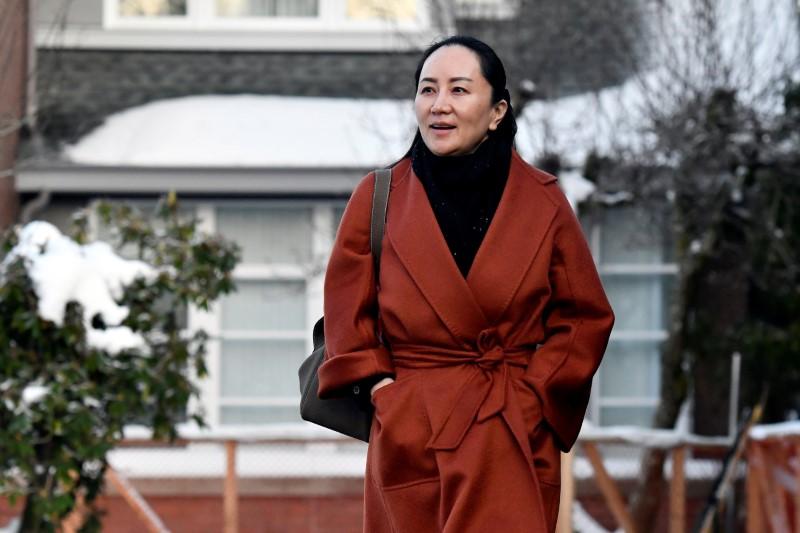VANCOUVER/TORONTO (Reuters) – China on Monday repeated its call for Canada to release Huawei Chief Financial Officer Meng Wanzhou, ahead of her expected arrival in a Vancouver courtroom for the start of a trial to decide whether she can be extradited to the United States.
The United States has charged Meng with bank fraud, and accused her of misleading HSBC Holdings Plc about Huawei Technologies Co Ltd’s [HWT.UL] business in Iran.
Court proceedings show the United States issued the arrest warrant, which Canada acted on in December 2018, because it believes Meng covered up attempts by Huawei-linked companies to sell equipment to Iran, breaking U.S. sanctions against the country.
Meng, 47, is the daughter of Huawei’s billionaire founder Ren Zhengfei and remains free on bail in Canada. She has said she is innocent and is fighting extradition in part because her alleged conduct was not illegal in Canada, an argument known legally as “double criminality.”
Related Coverage
- Key events in Huawei CFO Meng Wanzhou's extradition case
Unlike the United States, Canada did not have sanctions against Iran at the time Canadian officials authorized commencing with the extradition, her lawyers have said.
The first phase of the trial will last at least four days, but legal experts have said it could be years before a final decision is reached in the case, since Canada’s slow-moving justice system allows many decisions to be appealed.
Meng’s legal team is currently only scheduled to call evidence in the last week of April, and a second phase of the trial, focusing on abuse of process and whether Canadian officials followed the law while arresting Meng, is set to begin in June. Closing arguments are expected in the last week of September and first week of October.
The case has had a chilling effect on relations between Ottawa and Beijing and China has called the arrest of Meng, who has been living in a mansion in Vancouver’s exclusive Shaughnessy neighborhood since it occurred, politically motivated.
U.S. President Donald Trump told Reuters in December 2018 he would intervene in Meng’s case if it served U.S. national security interests or helped close a trade deal with China. Chrystia Freeland, Canada’s foreign minister at the time, quickly warned Washington not to politicize extradition cases.
“The resolve of the Chinese government to protect Chinese citizens’ proper legal rights is firm and unwavering,” foreign ministry spokesman, Geng Shuang, told reporters during a daily briefing. He called Meng’s case a “serious political matter”.
‘SLAM DUNK’
Richard Kurland, a federal policy expert and lawyer who is not involved with the case, calls Meng’s double criminality argument around the absence of Canadian sanctions against Iran a sure bet.
“I think the defense has a slam dunk. There are no Iranian sanctions in Canada and anything (the prosecutors bring up) that’s related to an Iranian sanction in Canada may well be dismissed,” he said.
Soon after Meng’s arrest, China detained two Canadians, former Canadian diplomat Michael Kovrig and businessman Michael Spavor. China has denied their arrests were related to Meng’s case.
“We are fundamentally convinced of her innocence. We have confidence in the rule of law … her trial is critical for the company,” Huawei Canada’s Vice President of Corporate Affairs Alykhan Velshi told the Canadian Broadcasting Corp on Monday.
Meng’s legal team argued in November that she could not be extradited as Canada did not have sanctions against Iran at the time Canadian officials authorized commencing with the extradition, meaning her conduct was not illegal.
In response, Canada’s attorney general said Meng was arrested on charges of fraud and misleading HSBC, which is a crime in both countries.
Source: Read Full Article
